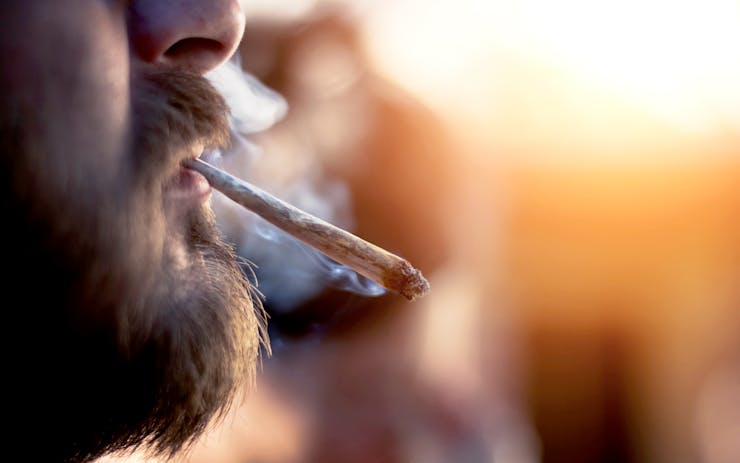Massachusetts, which became one of the latest states to legalize adult-use cannabis when voters passed Question 4 last year, could be one of the first to see on-premises consumption at state-licensed cannabis cafes.
The state Cannabis Control Commission on Monday unanimously approved a policy allowing the establishments, where patrons would be able to purchase cannabis products and consume them on site—just like a cocktail at a bar or a joint at an Amsterdam coffeeshop.
“The residents of Massachusetts need a legal place to consume marijuana other than their homes, because not everyone can consume at home,” Shaleen Title, the commissioner who authored the policy, told Leafly. “This allows people to consume marijuana products in a licensed, safe environment with trained staff.”
The commission is currently discussing other policies for the state’s forthcoming cannabis market. It’s slated to vote on draft regulations at the end of next week and publish them Dec. 29. Final regulations are due in mid-March, with businesses expected to open as soon as July 1, 2018.
“Our mission is to honor the will of the voters of Massachusetts,” Title said.
Under the proposed change, spas could apply for a license so a massage therapist could use cannabis-infused topicals.
Servers at cannabis cafes would need to be trained on how to identify customers who are too intoxicated, similar to what’s expected of bartenders. And like other states, Massachusetts will continue to keep alcohol and cannabis separate. Cannabis clubs won’t be able to serve booze.
It’s also unknown whether cannabis clubs would smoking. Title said the commission will likely appoint a working group to study issues related to indoor and outdoor combustion.
And while an earlier draft would have allowed patrons to bring cannabis grown at home or purchased elsewhere, Title said that provision was removed from the final motion approved by the board.
Title said the clubs would offer an opportunity for responsible cannabis consumers in Massachusetts to lead by example.
“I think that with cannabis use, having been so underground as part of prohibition, it was something that had to be kept secret and as a result, there wasn’t as much opportunity for education and awareness and the sharing of information about responsible use, so that’s the part I’m excited about,” she told public radio station WBUR.
The policy shift would also open the door to other businesses using cannabis on site. In addition to “primary use” licenses that would allow social-use cannabis clubs, the plan would also offer a “mixed-use” license for businesses that make more than 50% of their revenue from other products or services and want to incorporate cannabis into their operations. Spas, for example, could apply for a license so a massage therapist could use cannabis-infused topicals. The commission lists movie theaters, restaurants, and yoga studios as other possible examples.
Other jurisdictions have flirted with the notion of on-site cannabis consumption but have yet to see legal cafes open. Alaska, which legalized cannabis through a 2014 ballot initiative, has considered, reconsidered, and most recently postponed action that would allow the establishments to exist. Officials are set to take up the debate again next year.
In Colorado, where public consumption isn’t addressed under state law, Denver voters last year passed a bring-your-own-cannabis measure that allows on-site consumption at licensed businesses. The locations can’t sell cannabis, however, and licensees aren’t allowed to serve alcohol. The city received its first application last week, and a public hearing is expected within two to three months.
Editor’s note: This story has been updated and adds additional comments from the policy’s author, Commissioner Shaleen Title.





